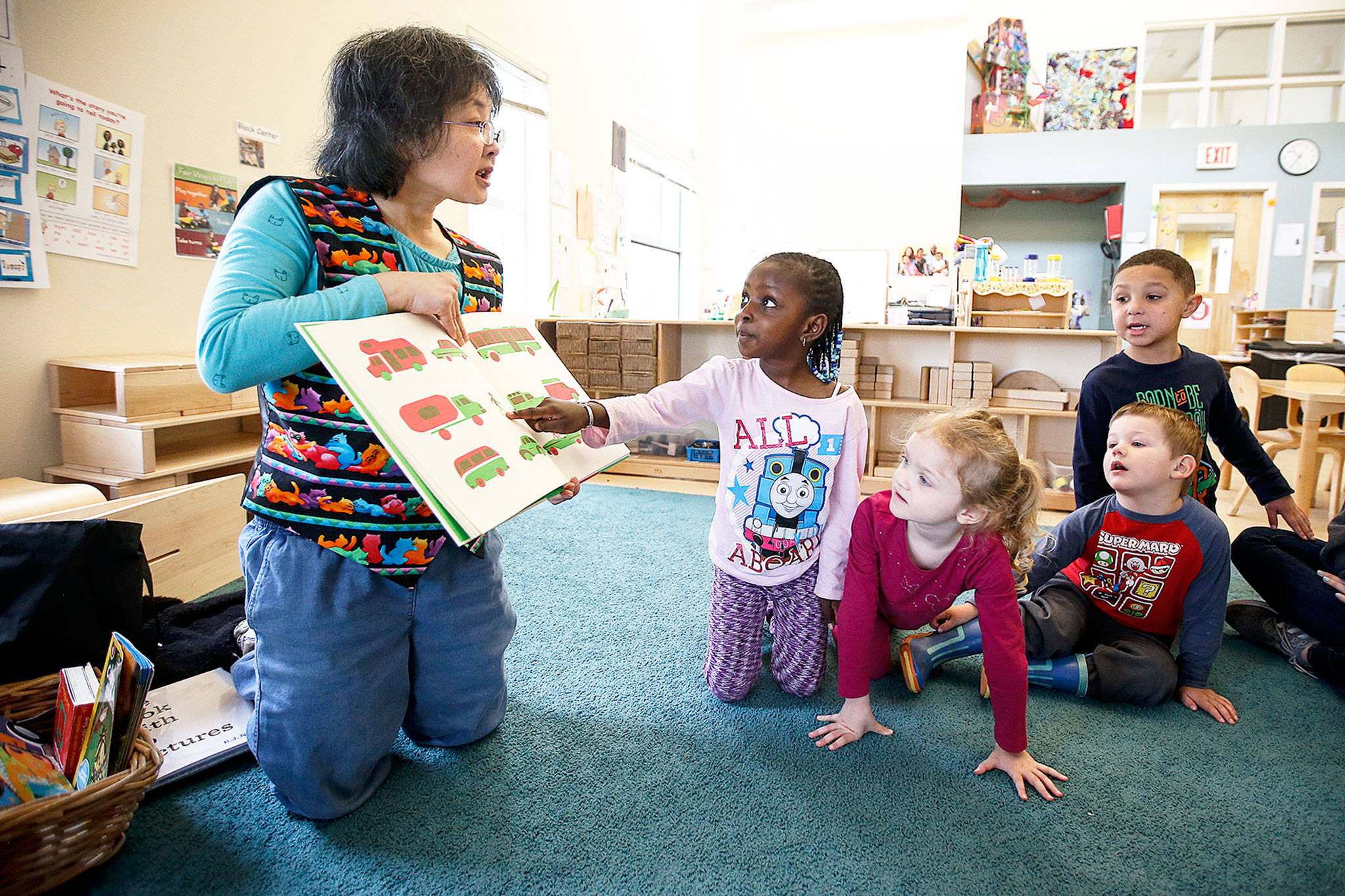EVERETT — More spots are opening next year in a state-funded program for preschoolers, but it’s not yet enough to meet demand, according the state Department of Early Learning.
The Early Childhood Education and Assistance Program provides education, health, nutrition and family support. It is available to 3- and 4-year-olds who come from low-income households, need special education services, or are impacted by issues such as violence or substance abuse in their family.
No more than 10 percent of ECEAP children can come from families that make more than 110 percent of the federal poverty threshold: $27,610 a year for a family of four in 2018.
The Department of Early Learning is putting nearly $10 million in state funding toward opening spots for 1,000 more children next school year, according to a news release. That includes 350 part-time spots, 600 full-day openings and extended days for 50 additional children.
It’s part of an expansion plan that aims to provide enough space for all eligible children by 2022.
Of the 1,000 new spots, 142 are expected to be in Snohomish County. Local programs will be able to take 53 more full-day and 89 more part-day students.
Statewide, the openings are less than half of what was sought. The state received more than 2,100 requests for new spots. Nearly half of those were for the full-day program.
In Snohomish County, ECEAP is offered in Arlington, Darrington, Everett, Gold Bar, Granite Falls, Lake Stevens, Marysville, Monroe, Mukilteo, Snohomish, Stanwood and Sultan, according to the Department of Early Learning.
The preschoolers gather at a number of elementary campuses. Everett Community College offers ECEAP at its early learning center. There also are programs in preschools run by Volunteers of America Western Washington in Everett, Sultan and Gold Bar; a learning center at Josephine Caring Community in Stanwood; and at other designated early learning centers. The Lake Stevens School District, for example, finished building a new center in December.
About 65 ECEAP students go to the preschool at Everett Community College. Another 36 are at a satellite campus in Monroe. Next year, there will be 36 students at each location because a half-day program in Everett is being cut in favor of more full-day spots, said Amie Waters, the center’s assistant director and ECEAP program manager.
“Our half-day program was harder to keep full,” she said. “Families are needing full-day programs.”
There’s more demand than there are full-time openings, she said. Lessons focus on play-based learning. There are health screenings and resources for parents looking to climb out of poverty.
“There are a lot of families that really could benefit from ECEAP and all it has to offer,” Waters said.
The EvCC program works closely with the Everett School District. More spots are expected to open up in Everett next year, Waters said.
“Local kindergarten teachers always let us know that the children who come from our ECEAP programs are by far more kindergarten-ready than their peers who haven’t been in the program,” she said.
There are 120 spots for ECEAP students at the Volunteers of America locations, Chief Operating Officer Brian Smith, said.
“We have waiting lists for each of our sites,” he said.
Within the next two years, he expects the organization will be looking for a larger space to serve more children. Other services provided by the nonprofit overlap with ECEAP. For example, a pop-up food bank visits the preschools so it’s easy for families to get food.
The combination of education for children and resources for their families makes ECEAP impactful, he said.
“It really gives kids a leg up in their lives,” Smith said.
In November, a caseload forecast found that 21,625 children are eligible but not served by ECEAP or the federal equivalent, Head Start. Of those, 6,842 would be likely to take part if space were available. The demand is expected to increase.
“In addition to the 1,000 slots allocated for 2018-19, we will need 7,160 more slots by 2022-23 to serve all eligible children likely to participate,” according to the report.
The recommendation is to add nearly 1,800 spots each school year for four years, starting in 2019-20.
The Department of Early Learning expects that 13,491 students will be in ECEAP statewide during the 2018-19 school year.
Kari Bray: 425-339-3439; kbray@heraldnet.com.
Talk to us
> Give us your news tips.
> Send us a letter to the editor.
> More Herald contact information.


























